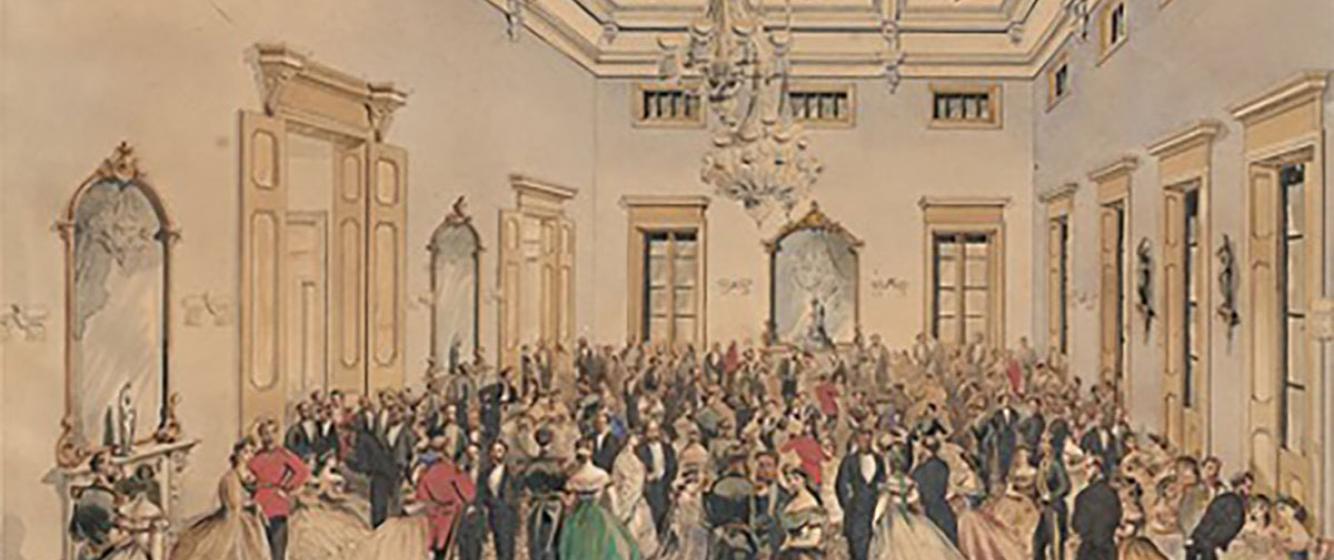
Splintered Solidarity: Macanese Associational Life in British Hong Kong
The first diaspora of Macau’s Luso-Asians (hereafter the Macanese) took off with the British acquisition of Hong Kong in 1842. As the Canton trade system began to fade out and foreigners left for Hong Kong, ambitious young Macanese saw the British colony as a springboard for better career and life opportunities. The first two decades of their migration marked the gradual growth of the population from 500 in 1851 to 1,250 in 1863. Vibrant communal interaction emerged within private and public enterprises where a majority of Macanese individuals served in middle- and lower-ranking positions. Macanese families resided along Queen’s Road near the first Catholic church. In late 1865, the foundation stone of the colony’s most well-known ‘Portuguese’ organisation, Club Lusitano Ltd., was laid in the presence of the Governor of Macau and the Acting Governor of Hong Kong in an event the local press claimed would long be remembered with pleasure. By this time, Hong Kong was already a bustling city coloured by British and German gentlemen’s clubs, Chinese and Portuguese theatres, and European sporting clubs like the Victoria Recreation Club.
A civil servant, two clerks, and one owner of a soda water company served as Club Lusitano’s pioneering directors. Its first President, J.A. Barretto, was clerk and bookkeeper for Jardine, Matheson & Co. He was also a land investor who did business with British buyers and owned a large bungalow in Kowloon before its urbanisation. The club showcased its members’ middle-class pastimes: up until the late 1860s, the public went to the Lusitano Theatre to watch Turkish magic shows and Italian opera productions, which were considered an occasional luxury for the working class. It was also through Club Lusitano that members established themselves as leaders of the colony’s ‘Portuguese’ community in inter-port sports, philanthropy, and Portuguese affairs. In 1880, the Club organised an event to celebrate the tercentenary of the death of Portuguese poet Luís de Camões. The event echoed an initiative started in Lisbon by historian Joaquim de Vasconcelos and led by Republican supporter Teófilo Braga. Club Lusitano’s celebration had three highlights. First, it was a display of the Macanese people’s ‘Portugueseness.’ Second, it emphasized the Macanese community’s gratitude and loyalty to the British colonial government. Third, it was well attended by prominent merchants and Hong Kong officials. The club proved efficient in increasing the public visibility of Macanese men, who would have otherwise remained part of a silent working class. J.A. Barretto, for instance, became a household name to frequent newspaper readers, and in 1877, the Governor of Hong Kong appointed him as the colony’s provisional Consul for Portugal.
While Club Lusitano provided space for middle-class Macanese men to pursue collective interests, it also became a breeding ground that precipitated intra-communal segregation based on differences in wealth and class status. Members admitted by the club’s balloting committee paid an entrance fee of five dollars and a monthly subscription of three dollars to use its facilities. The committee had the power to admit new members, reject ‘unqualified’ applications, and expel existing members. Those from the lower class, needless to say, were barred membership and excluded from the club’s activities. The late 19th and early 20th centuries saw a cracked surface within the Macanese community. In the 1890s, a short-lived oppositional organisation, Club Vasco da Gama, was started. Its President, the editor of the Portuguese-language newspaper O Porvir, printed articles lambasting Club Lusitano’s buttoned-up culture and Anglicisation. In 1906, Club de Recreio, a recreational club for Macanese families and a sports organisation for the Macanese youth was founded. This marked the birth of another alternative associational space, away from Club Lusitano’s gender- and class-exclusivity. Instead, it sought a conceptualisation of Portugueseness more concerned with constructing communal sociability than with establishing middle-class prestige and authority
Influenced by the rise of print capitalism and the global obsession with new nationalisms during the inter-war period, the fracture within the Macanese community would widen in the first few decades of the 20th century. Hostility against a quarter of Hong Kong’s Macanese who had naturalised as British subjects transpired across the colony’s newspapers. Anonymous writers accused ‘Portuguese’ leaders of betraying the Portuguese nation. Others refused to accept Macanese individuals of British status serving as unofficial members of the Legislative Council and leaders of the ‘Portuguese’ community. In 1929, Liga Portuguesa de Hongkong was established with the motto Por Deus e pela Pátria (“for God and for the Fatherland”), a rendition of the Salazar administration’s Deus, Pátria, Família (“God, Fatherland, Family”). The league worked closely with Club de Recreio and pledged loyalty to Portugal. It also committed to countering the Anglicisation of the Macanese by offering Portuguese-language classes, organising sermons delivered in Portuguese, and printing a Portuguese-language newspaper devoted to glorifying Portugal’s past and the dictatorial Salazar regime. While Club Lusitano adopted British club culture, celebrated the Queen’s birthday, and participated in activities that placed them side-by-side with government officials and merchants, Liga Portuguesa de Hongkong promoted Camões and celebrated Portuguese culture.
For diasporic communities like the Macanese, the circumstances of moving from a Portuguese settlement to a British colony presented new opportunities to construct unprecedented yet multilayered solidarity and segregation. As vibrant multiracial environments, colonial cities encouraged both deliberate and unintentional identity shifts: first-generation middle-class migrants found it useful to magnify their ‘Portuguese’ backgrounds and adopt British culture. By the turn of the century, a strand of the local-born and -bred Macanese found a unique sense of connection to British Hong Kong, while another saw Anglicisation as a problem that had to be reversed by stimulating Portuguese patriotism. Under the shadings of the British colony, these developments inevitably resulted in intra-communal segregation: where union was founded through associational spaces catering to varying needs, Macanese solidarity gradually splintered with diverse individual and collective interests.
Add new comment